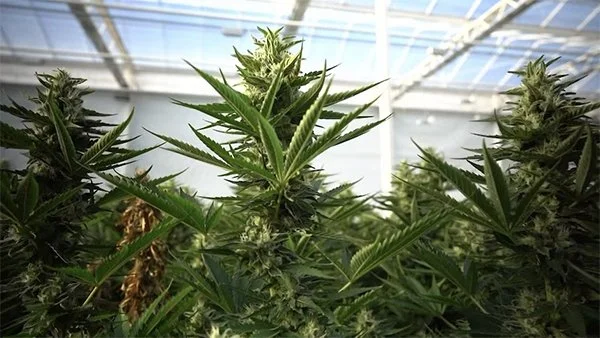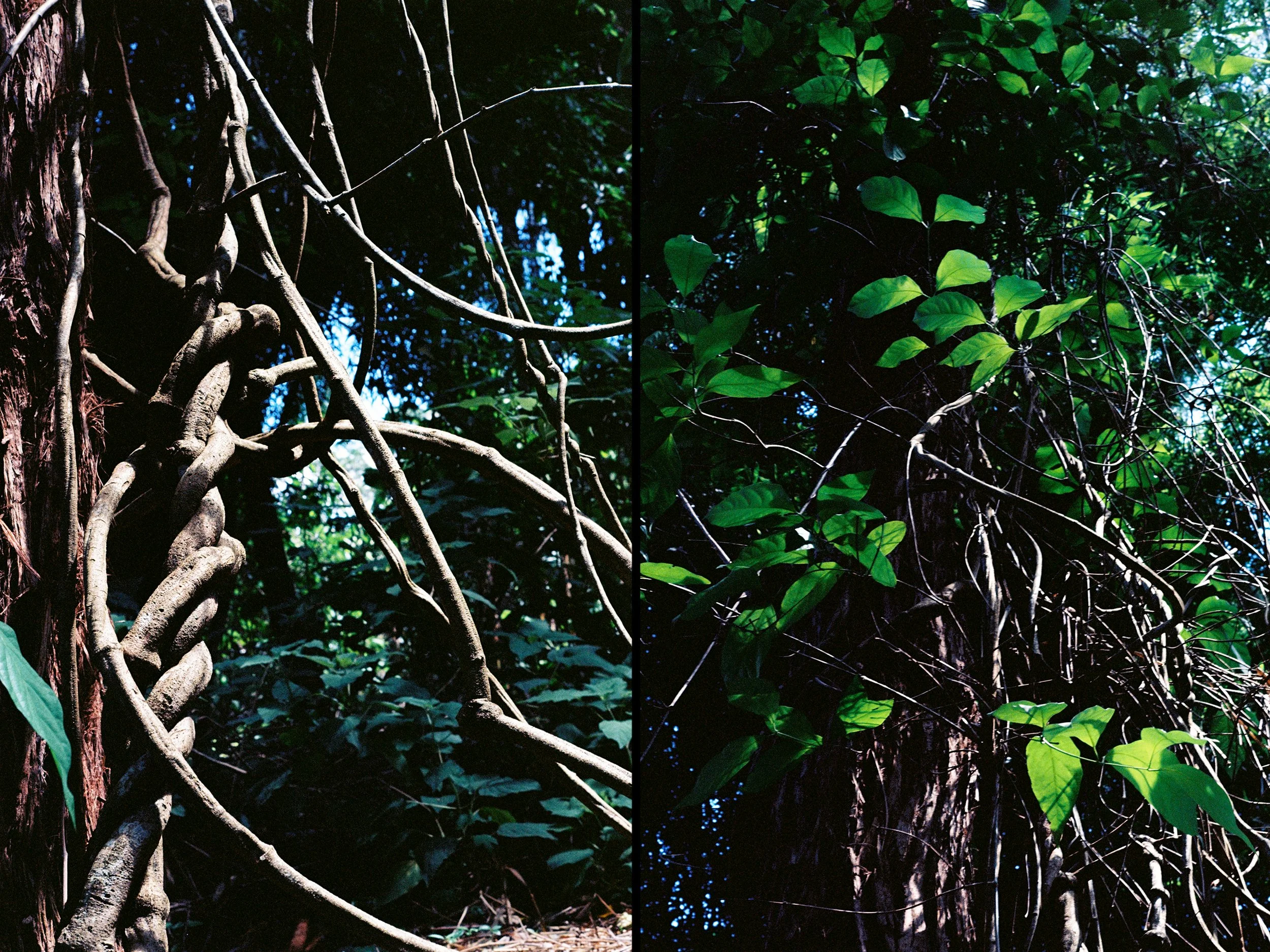
2025 Garden States Presentations
More to be announced soon!
A History of Pot Political Parties and Progress in Australia
Rachel Payne MP, David Ettershank MP, and Michael Balderstone
The evolution and growth of the Legalise Cannabis movement in Australia, from grassroots activism to registered political entities.
The Legalise Cannabis Parties evolved from a grassroots movement that began in the '70s, with the founding of the Australian branch of NORML (National Organisation for the Reform of Marijuana Laws).
Harry Pack & The Purple UFO
Harry Pack
In this talk, artist Harry Pack explores how creative expression can be a powerful tool for integrating altered states, supporting mental health, and deepening self-understanding. Drawing from his own journey, he shares how art has helped him make sense of visionary experiences and emotional healing.
He will introduce The Purple UFO, a collaborative platform that uses art as a bridge between inner transformation and community connection—bringing people together through shared creativity, nature-inspired practice, and open conversation around consciousness and integration.
Traditional Cannabis use in India
Dr GPS Jhala
Cannabis has deep roots in Indian culture, appearing in legends, religion, and daily life. The earliest references are found in the Vedas, sacred Hindu texts compiled between 2000 and 1400 B.C. According to the Vedas, cannabis was one of five sacred plants, believed to be inhabited by a guardian angel. It was described as a source of happiness, a giver of joy, and a liberator—compassionately gifted to humanity to ease suffering, bring delight, and dissolve fear.
Whose Futures Do Psychedelic Medicines Serve?
Alex K. Gearin
Across the globe, psychedelic medicine is provided through a striking diversity of practitioners and settings. This includes psychedelic therapists, assistants, curanderos, maestros, chaplains, facilitators, coaches, guides, companions, neo-shamans, and others. While psychedelic substances travel easily enough today, the ways of guiding them vary considerably.
From Clinics to Community: Exploring the Spectrum of Psychedelic-Assisted Psychotherapy in Australia
Petra Skeffington and Dr Stephen Bright
This presentation will explore what we have learned through the lived experiences of individuals undergoing Psychedelic Assisted Psychotherapy about the suitability of these treatments in a range of different clinical and non-clinical settings. Our aim is not to advocate for one approach over the other, but to clarify the different roles that these therapies can play in healing, depending on the individual and their circumstances.
The Botanical Roots of Ecstasy
Jeremy J, Torsten Weidemann and Dr Adam J. Carroll
From alchemical elixirs to modern psychedelics, the pursuit of consciousness-altering substances has long followed the fragrant trail of the plant kingdom. This presentation explores the historical and biochemical lineage connecting alchemy, the distillation of botanical essences, and the development of psychedelic phenethylamine analogues based on the prototypical compound mescaline.
The Regulation of Cannabinoid Accumulation
Lennard Garcia-de Heer
From single-digit THC percentages in the 70’s to modern varieties pushing 35% and beyond, Cannabis breeding is a rapidly developing space. Despite the incredible success of underground breeders, Cannabis development was stifled for a century.
Australian Psilocybe and their Ecology
Caine Barlow
The past decade has seen a significant turnaround in our understanding of the genus Psilocybe in Australia, with passionate citizen scientists contributing to a deepening understanding of ecology and distribution of many species.
This talk examines both well known species of Psilocybe, reviewing what we know, and discussing new species being found which have contributed to a dynamic picture of species over space and time.
Global Mushroom Magic: Current Legal Models of Access to Psilocybin Around the World
Martin Williams
Psilocybin is a Schedule 1 Prohibited Substance in most parts of the world, but various jurisdictions are enabling access to psilocybin by one (or both) of two pathways: decriminalisation and legalisation. This talk will provide an overview of the current legal status and models of access to psilocybin in various countries, and the way forward in medical and non-clinical contexts.
Acacia Crossroads
Nen
This talk will look at some of the lesser-known but fairly common medicinal and psychoactive compounds in Acacia sensu lato (worldwide) which have important applications, barely yet explored by the scientific world. Also, we will look at the profound cultural/spiritual significance of these trees, which sets them apart from other kinds of healing or sacred plants.
A Critical Feminist Perspective on Historic and Contemporary Clinical Psychedelic Use in Australia
Kayla Greenstien
Current psychedelic training and practice in Australia are shaped by transpersonal and spiritual frameworks that carry long-standing ethical concerns. This talk takes a critical feminist approach to understanding how these frameworks became uncritically embedded in clinical practice, and why this is a problem.
Psychoactive Cacti Chemistry
Liam Engel
This lecture examines the cultural, legal, pharmacological, and conservation dimensions of mescaline-containing cacti, emphasising San Pedro (Trichocereus spp.), Peyote (Lophophora williamsii) and their chemical analysis using liquid chromatography–mass spectrometry (LC-MS).
Fruiting Bodies, Political Depression and Composting the Psychedelic Dream
Samuel Douglas
What happens after the dream dies? After it’s co-opted, diluted, and sold back to us in government-approved doses for those who can afford it, while those who can’t risk their freedom for a glimpse of transcendence? This talk is for those sitting with the weight of these questions.
Wood-lover paralysis: what we know so far
Caine Barlow and Dr Simon Beck
Caine Barlow and Dr Simon Beck ran a citizen-science survey aiming to provide the first systematic description of the “wood-lover paralysis” phenomenon and try to identify any clear factors that might predict or explain the seemingly random nature of its occurrence. Join them to learn about the findings, their thoughts on several theories about the phenomenon, their experience of trying to undertake the research, observations on the spread of (mis)information and their harm reduction advice.
Determination of Psychoactive Alkaloids in Psilocybe subaeruginosa of Victoria by HPLC-PDA
Mohammad Reza Mirzadeh
Psilocin, psilocybin and the associated tryptamines are psychoactive alkaloids which are naturally synthesised by Psilocybe (Fr.) P.Kumm. fungi, commonly referred to as magic mushrooms. These psychoactive fungi were and may still be used in traditional healing rituals, particularly by certain ethnic groups for mental healing, influencing modern psychedelic studies. Since these substances are intermittently determined in analytical laboratories, validated methods for fast, accurate and reliable analysis are in demand.
Psychedelic Fireside Chat: Martin Williams in conversation with Rich Haridy
Martin Williams and Rich Haridy
A scientist and a journalist sit down for an informal chat about psychedelics, science, modern medicine and everything in between. Martin Williams has been immersed in the world of pharmacological research for decades, working most recently on several psychedelic clinical trials in Australia. Rich Haridy has been reporting on the world of psychedelic science for nearly ten years.
Psychedelics in the Polycrisis
Nick Sun
As you may have noticed, reality has become an exponential shitshow in the last five years with all manner of destabilising events and influences that have made many of us question the very fabric of a once shared consensus reality. Never before have we faced such a number of varied and largely man-made existential threats to our survival as a species. Climate change, AI, political corruption, economic instability, pandemics, the sixth mass extinction, social media, information warfare, nuclear arms threat, the list goes on.
Wild Fungi DNA
MYCOmmunity Applied Mycology has been building capacity for citizen mycologists to use technology such as DNA sequencing and microscopy to help study Australian native fungi. Through our Wild Fungi DNA project and our citizen science laboratory, we have involved citizen scientists in projects studying fungal ecology, genetics and land management with fungi.
Psychoactive Plants of the ‘Middle East’
Snu Voogelbreinder
The region known today as the Middle East has a rich history, birthing streams of culture, religion and civilization that have helped form the modern world, and psychoactive plants have played a large role in the background.
Discussions around the use of psychoactive plants in the region are usually historical and focused mainly on their relation to Judaeo-Christian scriptures and traditions. In this presentation we will go further and explore other uses of plants and fungi amongst the diverse cultures of the region, both historic and contemporary.
Improving Accessibility to Psychedelic Treatments — What Can We Do to Make This a Reality?
Prashanth Puspanathan
Despite promising evidence for psychedelic-assisted therapy (PAT) in treating mental health conditions, its accessibility remains severely limited. Current delivery models are constrained by high costs, siloed clinics, and inefficiencies that limit scalability. This talk will outline the evolution of psychedelic therapy to date, its current limitations, and present a possible solution that is currently being explored in a clinical trial at Monash University.
We take a closer look at one key barrier: cost. Delivering PAT in specialist clinics with intensive therapist time results in a prohibitive cost structure, often overlooked in discussions about feasibility. Through financial analysis, we will highlight why addressing this structural inefficiency is critical for making PAT accessible.




















